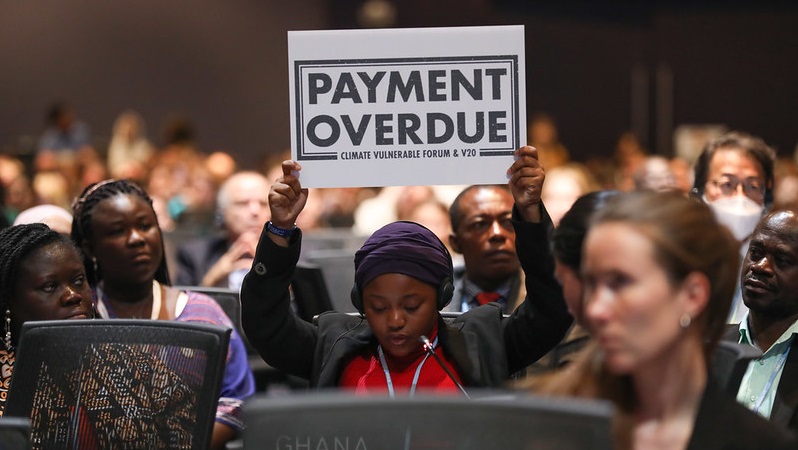A fund to deliver financing to places affected by climate-fuelled disasters should be created by the annual U.N. climate summit that opens at the end of November, the lead host negotiator at last year’s summit said on Thursday.
Agreement to establish a “loss and damage” fund was secured at Cop27 in Egypt last November, but the deal did not spell out who would pay into the fund or how money would be disbursed.
Before Cop27, rich Western countries had long resisted calls from vulnerable states for a loss and damage fund, fearing it could make them liable for historic emissions.
A committee tasked with deciding how funding should work held its first, three-day meeting this week in the Egyptian city of Luxor. It includes 14 representatives of developing countries, and 10 from developed countries.
Logistics not substance
The talks did not substantively tackle contentious issues such as sources of financing or the type of projects the fund would cover, but there was some convergence between delegates over a road map to create a fund, said Mohamed Nasr, Egypt’s lead climate negotiator.
Asked if a fund would be up and running by the time of Cop28, which will be held from Nov. 30 to Dec. 12 in the United Arab Emirates, he told an online briefing: “Will it be created? I hope so and I assume so, and this is what we are working towards.”
“Will it be delivering? I think this is a question of how complex this fund will be, and what will be the governing modalities and the working modalities of the fund.”
Not much time
The main points of divergence at the Luxor meeting were over whether to identify gaps in the existing system of climate finance before looking at the mechanics of the fund, or to work on both in parallel, Nasr said.
“Although they have different views, in many cases there was this mood of cooperation and understanding and responsibility that part of the outcome in UAE has to be these funding arrangements and the fund,” he told journalists in an online briefing.
Delivering on time would be a “major challenge”, he added.
Nasr said that countries had not changed their positions since the Cop27 talks.
Countries differ on how to interpret the Cop27 decision and on what to prioritise, he said.
Who gets funds?
The Cop27 agreement said funds should go towards “developing countries, especially those that are particularly vulnerable to the adverse effects of climate change”.
That encouraged developing country governments to push to be recognised as “particularly vulnerable” in the recent Intergovernmental Panel on Climate Change scientific report
The G77+China block of developing countries has said that all of them are “particularly vulnerable” whereas the European Union has pushed for a more limited definition, although it has not spelled out its criteria.
At the transitional committee, Ireland’s negotiator Sinead Walsh said: “You can’t focus on all the the countries if you have to focus on particularly vunerable countries. I agree we need to know what that means. But the one thing I do know – and this is just as an English speaker, this is not coming with any expertise – is that “particularly” and “all” do not mean the same thing.”
At the briefing, Nasr told Climate Home: “Many countries, I think, don’t want to go into a discussion of vulnerability competition because this is the wrong direction…it’s not a productive discussion”.
“One could not say that a small island facing hurricane after hurricane is not particularly vulnerable even if they are middle-income or high-income countries,” he said, and “you can not say that Pakistan is not partiuclarly vulnerable with what they have faced”.
Another contentious issue is who will pay into the fund, with the European Union and other developed countries pushing for China to pay despite its small contribution to climate change, relative to its population size. That was not substantively discussed at this week’s meeting.
The committee decided it would need four meetings this year instead of three and that South Africa’s Richard Sherman and Finland’s Outi Honkatukia would co-chair the committee.
